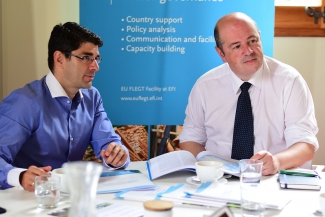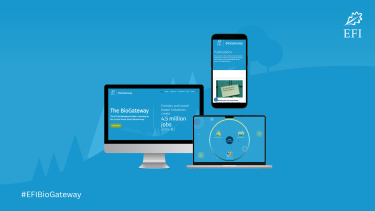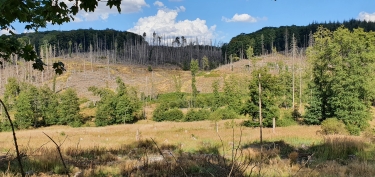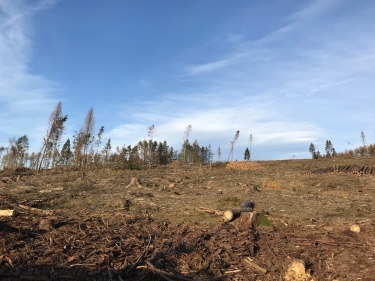The bioeconomy revolution must think local

Reconciling economic prosperity with environmental protection requires wise regional development
Over the last years, the bioeconomy has been held aloft as the eco-friendly solution for a post-oil society. The buzz around bioeconomy envisages a bio-transformation of the main economic sectors, from construction to transport and fashion, by maximising the potential of emerging digital bio and nanotechnologies. In the future, biomass is transformed into advanced biomaterials, products and services, reducing non-renewable resources to a minimum.
But bioeconomy shouldn’t be taken as a byword for environmental sustainability and one size certainly does not fit all. Producing, collecting and transforming biomass, as well as transporting finished products needs careful consideration as part of a multi-faceted approach. Circular, low carbon and resource efficient developments are needed, that take regional realities into account and seek solutions across sectors.
In southern Europe, current country bioeconomy strategies focus on developing bio-based sectors, especially agriculture, with no clear connection to broader environmental or industrial policies and largely taking sustainability for granted. In these strategies, forests are seen as relevant sources of biomass as well as providing important ecosystem services. Yet they provide little guidance on how to overcome existing barriers and to ensure that increased reliance on forest-based goods and services delivers the expected positive economic, social and environmental impacts.
A new synthesis report coordinated by the European Forest Institute “A forest-based circular bioeconomy for southern Europe: visions, opportunities and challenges” considers the elements required to radically transform production and consumption patterns in this region, with its huge diversity of landscapes and land use. “The concept of circular bioeconomy presented in this report can be a decisive development to make (...) transitions possible,” comments Bittor Oroz Izagirre, Deputy Minister for Agriculture, Fisheries and Food of the Basque Government. ”It holds the promise to reconcile economic development with environmental protection in a post-oil era”.
The report explores the potential for a circular bioeconomy tailored to southern specificities, where increased reliance on renewable, biological resources is combined with increased resource efficiency and circular material loops. A circular bioeconomy focuses on renewable, re-usable, recyclable and biodegradable products as part of a holistic, locally-focussed approach. Nature-based tourism, short value chains and putting value on the goods and services that forests provide to people have enormous potential to contribute to economic development in many regions. They are frequent priorities in regional smart specialisation strategies but should receive greater attention in national bioeconomy strategies.
The report considers the drivers, enablers and barriers for the forest-based sector in southern Europe. It looks specifically at bioeconomy strategies in France, Italy, Portugal and Spain, as well as that of the European Union. Exploring the potential for forests to contribute to a circular bioeconomy, it focuses on emerging bio-products and technologies, building with wood, and how to develop untapped value of non-wood forest products and the services provided to people by forests.
At the heart of the issue, as ever, is the need to adapt to and mitigate climate change. If we want to give it our best shot, we need to engage people, from actors in private and public spheres, from corporations to social entrepreneurs, from governments to citizens, in concerted action to change the way we manage and use natural resources and the way in which we design, produce and consume goods and services.
The synthesis report was financed by the Basque Government’s Department of Economic Development and Competitiveness, synthesising existing scientific knowledge with ideas discussed and refined in a set of thematic workshops held across southern Europe over the past two years.
Full reference: Martinez de Arano, I., Muys, B., Corrado, T., Pettenella, D., Feliciano, D., Rigolot, E., Lefevre, F., Prokofieva, I., Labidi, J., Carnus, J.M., Secco, L., Fragiacomo, M., Follesa, M., Masiero, M. and Llano-Ponte, R. 2018. A forest-based circular bioeconomy for southern Europe: visions, opportunities and challenges. Reflections on the bioeconomy. European Forest Institute.



